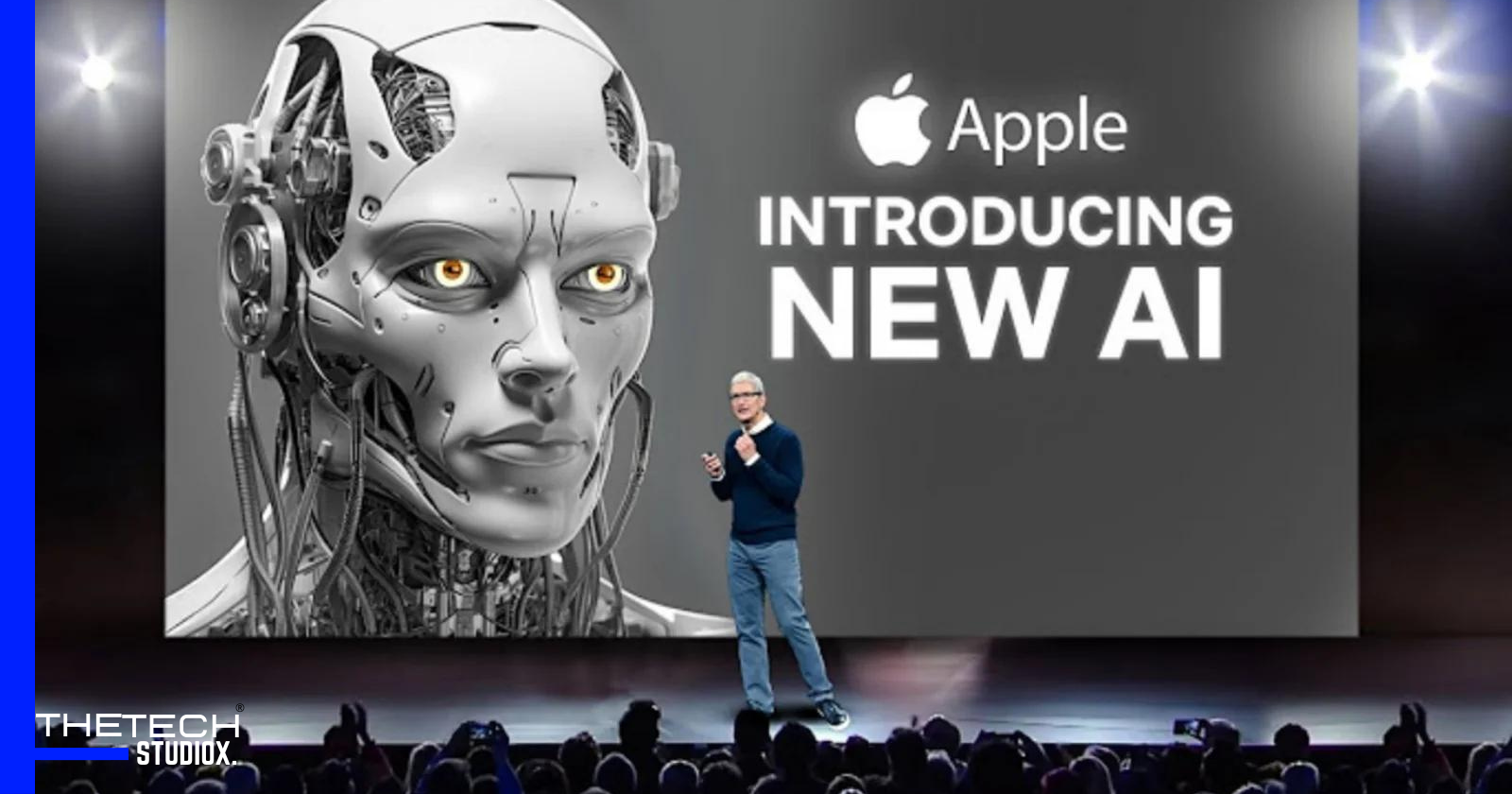Table of Contents
Introduction to Apple’s Generative AI Features
In the ever-evolving landscape of technology, Apple remains a key player known for its groundbreaking innovations. The recent announcement by Tim Cook during Apple’s quarterly earnings call has ignited anticipation and excitement among tech enthusiasts and consumers alike. This article delves into Apple’s upcoming generative AI features, as confirmed by Tim Cook, and the potential impact it could have on the company’s future.
Apple’s Commitment to Innovation
Over the years, Apple has carved a niche for itself through a relentless pursuit of innovation. From revolutionary products like the iPhone to cutting-edge software advancements, the company has consistently pushed the boundaries of technology. However, in a rapidly changing industry where competition is fierce, staying ahead requires continuous innovation and adaptation.
Tim Cook’s Confirmation
During the recent earnings call, Tim Cook made a significant announcement regarding Apple’s foray into generative AI software features. This revelation underscores the company’s commitment to exploring new frontiers in artificial intelligence. Generative AI has the potential to revolutionize user experiences by creating dynamic and personalized content, ranging from word processing enhancements to photo manipulation.
Importance of Generative AI
Generative AI holds profound significance in the realm of technology, paving the way for transformative advancements across various domains. At its core, generative AI encompasses algorithms and models designed to autonomously create content, ranging from text and images to music and beyond. The importance of generative AI lies in its ability to revolutionize user experiences, empower creativity, and drive innovation.
1. Personalization and Customization
Generative AI enables the creation of personalized and customized content tailored to individual preferences and needs. By analyzing vast datasets and learning from user interactions, AI algorithms can generate content that resonates with users on a deeply personal level. Whether it’s recommending tailored products or curating personalized playlists, generative AI enhances user engagement by delivering content that aligns with their unique preferences and interests.
2. Creative Expression and Innovation
One of the most exciting aspects of generative AI is its capacity to foster creative expression and spur innovation. By automating the creative process, AI algorithms can assist artists, designers, and creators in generating novel ideas, exploring new artistic styles, and pushing the boundaries of creativity. From generating original artwork to composing music and writing literature, generative AI empowers creators to explore uncharted territories and unleash their full creative potential.
3. Automation and Efficiency
Generative AI streamlines and automates various tasks, leading to increased efficiency and productivity across industries. By leveraging AI-driven automation, businesses can automate repetitive tasks, streamline workflows, and optimize resource allocation. Whether it’s automating content generation, optimizing supply chain management, or enhancing customer service through chatbots, generative AI enables organizations to operate more efficiently and effectively.
4. Insight and Discovery
Generative AI facilitates the discovery of new insights and patterns hidden within vast datasets, unlocking valuable knowledge and driving informed decision-making. By analyzing large volumes of data and identifying underlying trends and correlations, AI algorithms can uncover valuable insights that may have otherwise remained hidden. From predicting consumer behavior to identifying emerging trends in various industries, generative AI empowers organizations to make data-driven decisions and stay ahead of the curve.
5. Ethical Considerations and Responsible AI
As generative AI continues to evolve, it’s essential to address ethical considerations and ensure responsible AI development and deployment. From concerns regarding bias and fairness to issues related to data privacy and security, the ethical implications of generative AI are far-reaching. It’s imperative for organizations and policymakers to establish robust ethical frameworks and guidelines to ensure that AI technologies are developed and deployed in a manner that promotes fairness, transparency, and accountability.
In essence, the importance of generative AI extends far beyond its technical capabilities. It represents a paradigm shift in how we interact with technology, empowering us to unleash our creativity, streamline processes, and make informed decisions. As we continue to harness the power of generative AI, it’s crucial to approach its development and deployment with a thoughtful and ethical mindset, ensuring that it serves the greater good and enriches the lives of people around the world.
Implications for Apple
Catching Up with Competitors
In recent years, Apple has faced increasing pressure from competitors like Samsung and Google, who have been lauded for their innovative hardware designs and AI-powered software features. The introduction of generative AI features signifies Apple’s intent to reclaim its position as a leader in technological innovation.
Potential Sales Boost
Analysts have speculated that Apple’s lack of significant innovation in recent product iterations could impact its sales performance. However, the confirmation of generative AI features by Tim Cook has reignited optimism among investors and consumers alike. The prospect of groundbreaking AI capabilities integrated seamlessly into Apple’s ecosystem could drive demand for its products.
Analysts’ Perspectives
Industry analysts have weighed in on the implications of Apple’s generative AI announcement. Mark Gurman’s report highlighting iOS 18 as potentially the ‘biggest’ update in iOS history aligns with Tim Cook’s confirmation of upcoming AI features. Additionally, forecasts by analysts such as Min-Chi Kuo, citing a potential sales decline for Apple, underscore the significance of innovation in maintaining market competitiveness.
Speculations and Expectations
Integration Across Platforms
With Tim Cook hinting at the integration of generative AI features across iOS, iPadOS, and MacOS platforms, consumers can anticipate a cohesive and seamless user experience. From intelligent virtual assistants to enhanced content creation tools, the possibilities are limitless.
Conclusion
Apple’s confirmation of generative AI features marks a pivotal moment in the company’s journey towards innovation. With Tim Cook reaffirming Apple’s commitment to exploring the potential of artificial intelligence, the stage is set for a transformative update later this year. As technology continues to evolve, Apple remains at the forefront, poised to redefine the future of consumer experiences.
FAQs
What is generative AI?
Generative AI refers to a branch of artificial intelligence focused on creating dynamic content such as images, text, and music autonomously.
How will generative AI enhance user experiences?
Generative AI has the potential to personalize and tailor user interactions across various applications, resulting in a more intuitive and engaging experience.
When can consumers expect to see these features?
According to Tim Cook, generative AI features are slated to debut later this year, potentially coinciding with the release of iOS 18.
Will generative AI be exclusive to certain Apple devices?
While specifics regarding device compatibility have not been disclosed, Apple typically strives to ensure feature parity across its product lineup.
How does Apple’s approach to generative AI differ from its competitors?
Apple’s emphasis on privacy and user-centric design sets it apart from competitors, ensuring that AI features are seamlessly integrated while prioritizing user data protection.





[…] Also Read: Apple’s Generative AI Features: A Game-Changer Confirmed by Tim Cook […]
Can you be more specific about the content of your article? After reading it, I still have some doubts. Hope you can help me.